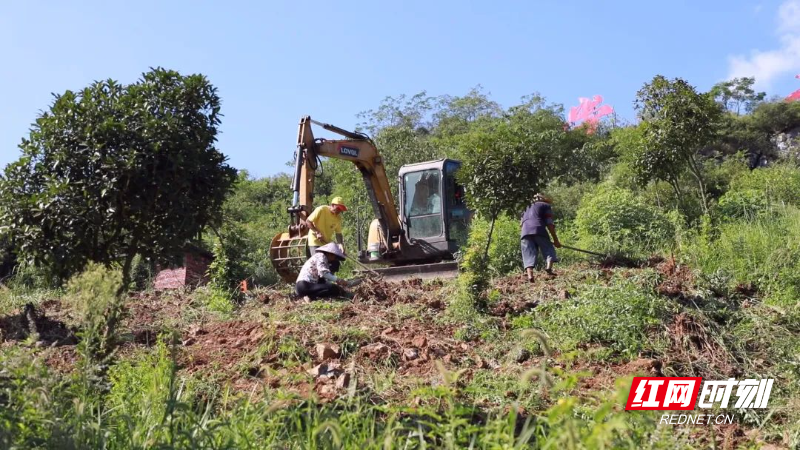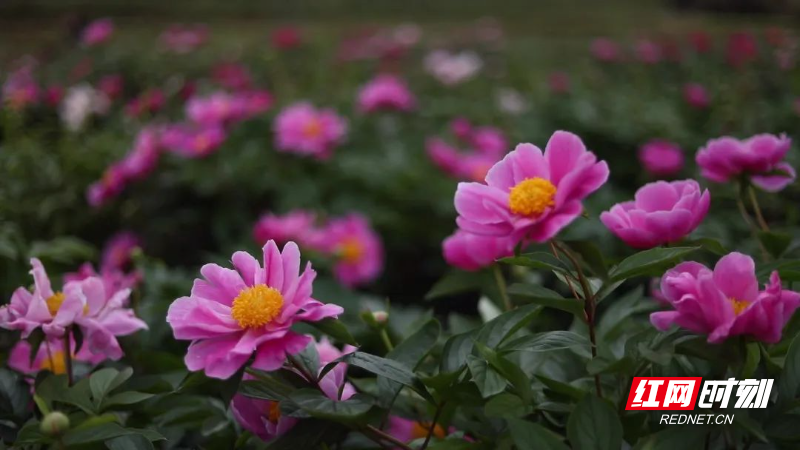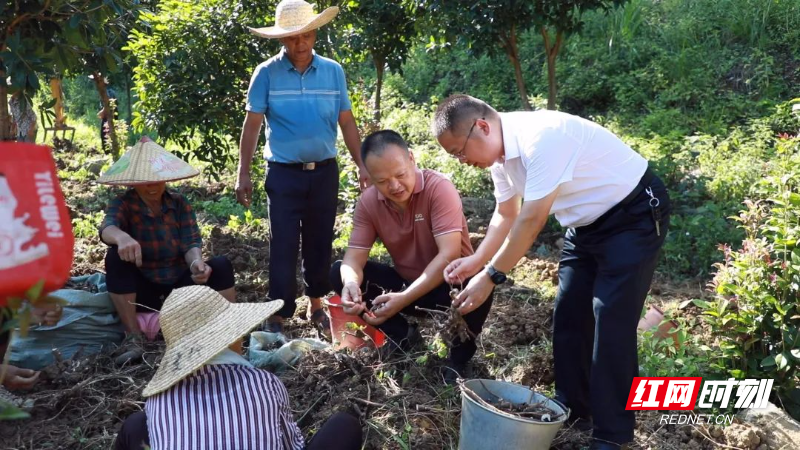Chinese peonies boost rural revitalization
2024-09-05
Recently, the Chinese peonies at a planting base in Puman Township, Jiahe County have entered their harvest period. Villagers are busy picking, sorting, and bagging their roots.

White Chinese peonies are a plant with both ornamental and medicinal value. In spring, they bloom into a dazzling sea of flowers, attracting tourists for sightseeing. In autumn, their roots can be harvested and used as medicinal herbs with the effects of dispelling wind and dampness, detoxifying and relieving spasm.
Lei Zhifan, Party secretary of Leijia Village, said, “We have vigorously developed the characteristic planting industry through the model of cooperative plus company, revitalized more than 200 mu (about 13.33 hectares) of idle land, and created a demonstration base for traditional Chinese medicinal herbs, with a total of 60 mu (4 hectares) of white peonies, 80 mu (about 5.33 hectares) of fructus evodiae, and more than 150 tangerine peel trees planted. Currently, white peonies have ushered in their harvest period, with a yield of about 1,000 kilograms per mu, which will greatly increase the income of the village collective.”

“I can work in the village and earn 3,000 yuan per month by planting this medicinal herb,” said a villager from Leijia Village.
In recent years, relying on local natural conditions and resource advantages, Puman Township has adjusted its industrial structure layout, established a medicinal herb cooperative, introduced technology, expanded sales channels, and planted herbs in a large scale to effectively improve the yield and quality of peonies.
“We provide technical guidance for local farmers to improve the yield and quality of medicinal materials, help them get accurate market information based on market forecasts to reduce risks caused by market uncertainty and promote win-win cooperation between the two sides,” said Wang Guangchi from a Hunan-based agricultural product company.

At present, more than 1,000 mu (about 66.67 hectares) of traditional Chinese medicinal materials have been planted in several villages of Puman Township, which can promote the upgrading and diversification of the agricultural industry, improve farmers’ income, and inject new vitality into rural revitalization.
Deng Yishun, Party secretary of Puman Township, said, “Next, Puman Township will increase investment attraction, focus on technical training, fully utilize idle land and encourage villagers to scientifically plant herbs through the cooperative development model of ‘company plus base plus cooperative’, so as to lay a solid foundation for building Puman into a strong industrial township.”
Chinese source: rednet




